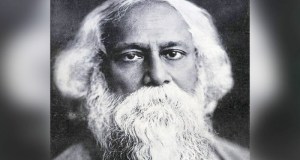 MNA Feature Desk: For the Muslim Ummah, the significance of Shab-e-Baraat is enormous and we must know how to spend this night with prayers to Almighty Allah. This night and its significance will be tried to explain in the following writing.
MNA Feature Desk: For the Muslim Ummah, the significance of Shab-e-Baraat is enormous and we must know how to spend this night with prayers to Almighty Allah. This night and its significance will be tried to explain in the following writing.
Laylat al-Barat -The Night of Salvation
There are many merits of Shabaan, especially the 15th of Shabaan, which is known as Shab-e-Baraat or LailatulBaraat, meaning the Night of Absolution. Insha Allah hereunder we will discuss the auspiciousness of Shab-e-Baraat and also a few things that should we do on this night.
The 15th night of Shabaan is a very blessed night. According to the Hadith Shareef, the name of this Mubarak night is “Nisf Sha’baan” which means 15th night of Shabaan. The reason for this special night to attain its name of Laylat al-Bara’ah, meaning the Night of Salvation, Seeking Freedom from Azaab and Calamity, is that in this night the Barakaat and acceptance of repentance may be accomplished.
Welcome the Night
On this auspicious night, you should perform fresh Ghusal and Wudhu and perform the ‘Two Rakaat’ of Tahhiyatul Wudhu. In every Rakaat, after the Suratul Fatiha, you should read Ayatul Kursi once and Surah Ahad 3 times. Also perform eight Rakaats of Salah with four Salaams. In each Rakaat after the Surah Fatiha, you should read the Ayatul Kursi (once) and Surah Ahad fifty times.
The Significance of Shab-e-Baraat
Sayyiduna Rasoolullah (SallAllahu Alaihiwa Sallam) has stated: “Verily! Almighty Allah directs His Special Grace on the world on this Night. He forgives my Ummah more than the number of wool that is found on the sheep of the Bani Kalb”. We should remember that in those days the Bani Kalb possessed the most number of sheep that any other tribe.
How great is the Mercy of Almighty Allah on this night that He forgives millions of Muslims. We also realize from this that these numbers can only pertain to the Ahl as-Sunnah Wah Jama’ah collectively, for the righteous followers of the Hanafi, Shafi’i, Maliki and Hanbali indeed number millions of Muslims.
It is narrated that the departed souls (Arwaah) of the Muslims visit the houses of their friends and relatives on this night and proclaim: “O people of the house! You stay in our houses and enjoy the wealth that we have left behind. You use our children and take work from them, please perform our Esaale Sawaab. Verily our deeds have become complete, while your record of deeds is still spread”.
If the people of the house perform the Esaale Sawaab and Khatam Shareef on this night, then the Arwaah depart will the Sawaab extremely happy and overjoyed all the time making Du’a for the people.
Hadrat Ayesha Siddiqa (radi Allahuta’ala anha) reports: “One night, which was the 15th of Shabaan, I did not find the Beloved Prophet (SallAllahu Alaihiwa Sallam) in the house so I went in search of him. After a long search, I found him in Baqiah (the cemetery of Madinah) offering Du’a for the deceased and praying for their forgiveness”.
A special point must be made to visit the cemetery during this night and pray for the deceased buried therein, as the Most Beloved Prophet (SallAllahu Alaihiwa Sallam) is been reported as having visited the cemetery on this night and spending a long time therein, lamenting, reading and praying for the deceased.
How to spend the Night
On this night, perform Nawaafil, recite the Qur’an Shareef, recite abundant Durood Shareef, Istighfaar and Kalima Tayyibah. It is also mentioned that if one reads Surah Dukhan seven times on this night, Almighty Allah will reward you with 70 worldly needs and 70 deeds for the Hereafter.
Do not be amongst the deprived of Mercy:
Sayyiduna Rasoolullah (SallAllahu Alaihiwa Sallam) said: “Almighty Allah forgives all Muslims on this night, besides the fortune tellers, the magicians, the alcoholics, those who disrespect their parents and those who take part and encourage adultery”. In another narration, the following people have also been mentioned:
- One who deals in usury (Riba),
- One who wears his trousers below his ankle with pride and arrogance (In Arabia, people displayed their wealth and boasted in this manner),
- One who creates disunity among two Muslims,
- The person who unjustly takes away the right and property of another Muslim and has not yet rectified himself.
A humble appeal to seek pardon and ask Allah’s forgiveness
Dear Muslim brothers, the Bountiful Allah in His Infinite Mercy has provided us with such an auspicious night so that we may take advantage of it and repent for our sins, and thus obtain His Grace and Favor. It is for us to take full advantage of it. During this night, offer special prayers and repent sincerely for our past sins and ask for His Forgiveness.
Also on this night the Doors of Mercy and Forgiveness are opened wide, and those who sincerely grieve over and repent for their past sins and seek forgiveness from Allah are pardoned and forgiven by the Grace of Allah the Merciful.
Each Tasbih or Du’a should begin and terminate with the recital of Durood Shareef and one who wishes for the acceptance of his Du’as should use the Wasila of Sayyiduna Rasoolullah (SallAllahu Alaihiwa Sallam).
So, it is our duty, as the Ummat of Rasoolullah (SallAllahu Ta’ala Alaihiwa Sallam) to love and respect this month more than any other month (besides Ramadan). We should also offer abundantly salutations (Salaat-o-Salaam) upon the Most Beloved Prophet.
Nafil Salaah to be prayed on Shab-e-Baraat
Basharat of Jannat: Sayyiduna Rasulullah (SallAllahu Alaihiwa Sallam) is reported to have said that Allah Ta’ala instructs and assigns 100 angels to the person who performs 100 Nafil Salaahs on this auspicious night, 30 of which will bring the good news of Jannat, 30 angels to protect one from the Azaab (Punishment) of Dozakh (Hell), 30 to remove all misfortunes and miseries of this world and 10 angels to protect one from Shaitaan.
The Guardian of Imaan: After performing Maghrib Salaah, read 2 rakaahs of Nafil. In the first rakaah, after Surah Fatiha, recite Surah Ikhlaas 3 times and Surah Falaq once.In the second rakaah, after Surah Fatiha, recite Surah Ikhlaas 3 times and Surah Naas once. After Salam, make Du’a and ask Allah to protect your Imaan.
Barakah in Rizq: After Maghrib Salaah, read 2 rakaahs of Nafil. Thereafter, read Surah Yasin once, Surah Ikhlaas 21 times and Du’a Nisf Shabaan once. Then, make Du’a for Barakah in Rozi and ask Allah not to make you dependent on anyone.
Long Life filled with Piety: After Maghrib Salaah, read 2 rakaahs of Nafil. Read Surah Yasin once. Then read Du’a Nisf Shabaan once. Thereafter, make Du’a for long life filled with piety and righteousness.
Reward for ten thousand good Deeds: Anyone who performs 20 rakaahs of Nafil after Maghrib in such a way that after Surah Fatiha, recites Surah Ikhlaas 10 times in every rakaah, will be rewarded abundantly by Allah Ta’ala, and ten thousand good deeds will be recorded in his Amal Namaa (Book of Deeds).
Death with complete Faith/Imaan: Anyone who performs 2 rakaahs of Nafil on the last Friday of Shabaan between Maghrib and Esha will die with full faith and Imaan. After Surah Fatiha, one shoul read Ayatul Kursi once, Surah Ikhlaas 10 times and Surah Falaq and Surah Naas once in both rakaahs.
Besides these one should also try to visit the Qabarastan (graveyard) to make Dua of Maghfirat (Forgiveness) for the deceased, as this is the Sunnah of our beloved Rasool (Sallallahu Alaihi Wasallam). This is an opportunity that everyone needs to take advantage of. We do not know if our names will be written on the list given to the Angel of Death this year, and whether we will have the opportunity of experiencing this blessed night again. We must make Tauba (repent) for our sins and ask for Allah Forgiveness.
 Mohammadi News Agency News – Features – Photo
Mohammadi News Agency News – Features – Photo






